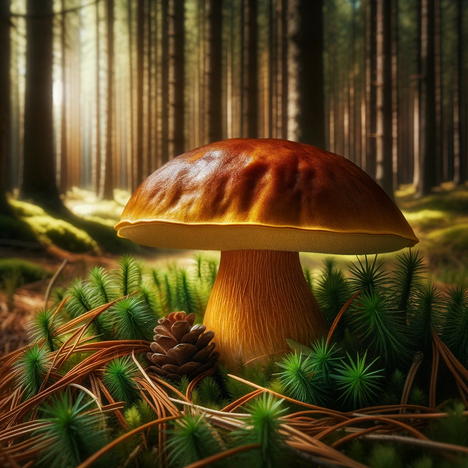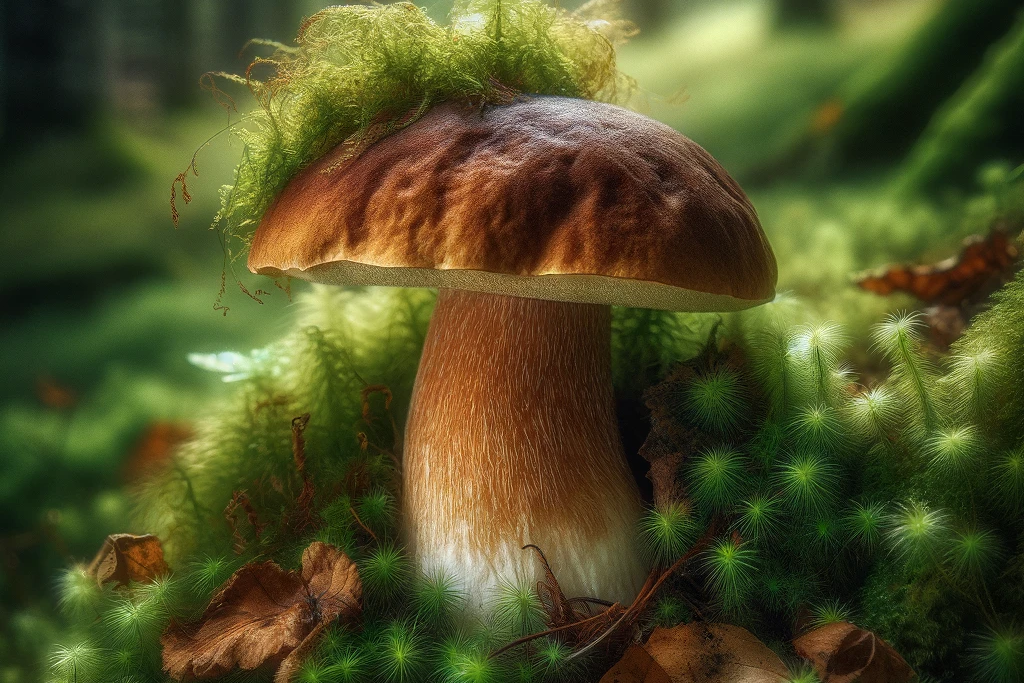Golden boletus

When walking through the forest or park, you often come across a variety of mushrooms that not only attract the attention of nature lovers, but also that of our four-legged friends. One of these mushrooms is the golden boletus, known for its striking appearance and as a popular delicacy among mushroom pickers. But while mushrooms can be an enrichment for human cuisine, the question of their safety and suitability for dogs arises. In this article, we take a closer look at the golden boletus to understand what it is and discuss the potential benefits and drawbacks of its ingestion by dogs.
What is the golden bolete?
The golden boletus (Suillus grevillei) belongs to the family of the smear boletus and is found particularly in coniferous forests, where it lives in symbiosis with larch trees. It is easily recognizable by its golden-yellow cap and the tubes under the cap, which contrast with the lamellae of other mushroom species. Due to its pleasant taste and availability, it is often sought after by mushroom pickers.
Advantages of golden boletus
Rich in nutrients
Like many other mushrooms, the golden boletus is rich in nutrients, including proteins, vitamins (especially vitamin D) and minerals, which can be beneficial in a balanced diet. For humans, eating golden boletes can therefore offer health benefits.
Natural source of antioxidants
Mushrooms contain natural antioxidants that can help reduce cell damage and boost the immune system. Although these benefits have mainly been studied in humans, they could theoretically also apply to dogs.
Disadvantages and risks
Potential toxicity
The main issue with feeding mushrooms such as goldenseal to dogs is the potential toxicity. While the golden bolete is considered edible for humans, dogs can react differently to certain types of mushrooms and tolerance can vary greatly. Symptoms of mushroom poisoning in dogs can include vomiting, diarrhea, tremors, seizures, and in severe cases, liver failure.
Difficulty of identification
Another risk is the difficulty in correctly identifying mushrooms. Confusion with poisonous mushroom species is not uncommon, even for experienced mushroom pickers, and can be life-threatening for dogs.
Unknown long-term effects
There is little research on the long-term effects of eating mushrooms, including the golden bolete, on dogs. Even if no immediate symptoms of poisoning occur, unknown long-term effects could affect the dog's health.
Better safe than sorry
While golden boletus and other mushrooms can be a nutritious addition to the human diet, great caution should be exercised when feeding them to dogs. The potential risks and uncertainty regarding toxicity and tolerance outweigh the possible benefits. As a responsible dog owner, it is important to limit your dog's diet to safe and known foods and avoid experimenting with wild mushrooms. If you want to provide your dog with a varied and nutritious diet, consult a veterinarian to explore safe and healthy options. When in doubt, what is found in nature is not always safe for everyone.
If you notice any signs of hypersensitivity or poisoning in your dog, you should see your vet immediately. We are not a substitute for a vet, but we try to be as accurate as possible. Every dog reacts differently and we recommend you get a second opinion or consult your vet if in doubt.
Stay healthy and take good care of your four-legged friend!😊
Similar to Golden boletus
The lactarius mushroom, scientifically known as Lactarius, belongs to the russula family. This mushroom is particularly known for its milky liquid that comes out when you break or cut it. There are...
Butter mushrooms belong to the genus of the butter mushrooms and can be found in forests and meadows. They are known for their characteristic, slightly nutty flavor and soft texture, which gives...
The common boletus (Boletus edulis) is a member of the boletus family and is known for its nutty taste and firm texture. It grows in forests in Europe, North America and Asia and is used both fresh...
Porcini mushrooms belong to the boletus family and are one of the best-known and tastiest types of mushroom. They have a firm, light brown cap and a white to yellowish stalk. The tubes under the cap...



